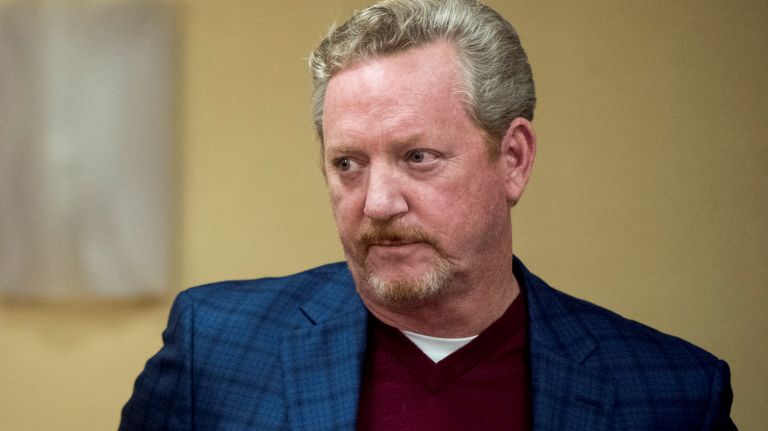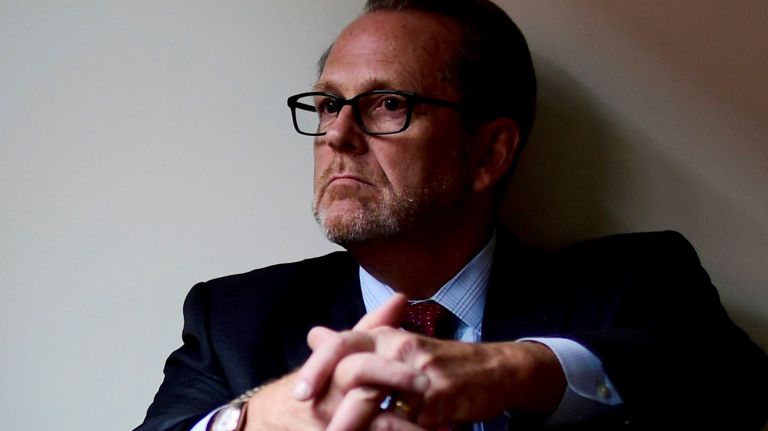Advocates for Clergy Sex Abuse Victims Criticize Pope Francis" New Laws
By Bart Jones
Advocates for clergy sex abuse victims on Thursday dismissed Pope Francis’ new rules on reporting allegations as an empty gesture that will perpetuate a culture of secrecy and cover-up. The new church laws, which local church leaders praised, require all Catholic priests and nuns around the world to report clergy sex abuse and cover-ups involving superiors, with whistleblower protections and no retroactive limits. They are required to report allegations to church officials and not police, and there are no church sanctions for violators. “It’s all cut from the same cloth of, ‘We can fix this problem ourselves,’ ” said John Salveson, who says he was abused by a priest at St. Dominic’s parish in Oyster Bay for seven years starting in 1969.
“We are talking about criminal activity. Criminal activity should be reported to criminal justice agencies — to the police, to the district attorneys, to the FBI,” he said. Often, church higher-ups “are the enablers.” Mitchell Garabedian, a Boston-based attorney who also represents victims in New York, said the new laws “continue the secrecy which has enabled clergy sexual abuse to exist, allows the Catholic Church to continue to ineffectively self-police and basically discourages victims from just calling the police." “History has taught us that the Vatican, with its self-proclaimed laws and procedures, is incapable of protecting innocent children from being sexually abused,” said Garabedian, who was portrayed in the film “Spotlight” about the clergy sex abuse scandal in Boston. The decree affects the world’s 415,000 Catholic priests and 660,000 religious sisters. It is the pope’s latest move to address an ongoing crisis that has threatened to undermine the credibility of the church and his own, once wildly popular papacy. Bishop John Barres of the Diocese of Rockville Centre through a spokesman praised Francis' decree as "measures that will further the protection of children and vulnerable adults, while holding bishops accountable for their actions." Barres and Cardinal Timothy Dolan of the Archdiocese of New York both said dioceses around the country had already adopted many of the measures in the pope's mandate. They include "an accessible system for reporting abuse … as well as claims against bishops and Religious Superiors," Rockville Centre spokesman Sean Dolan said. Cardinal Dolan said the pope “once again displays his deep pastoral concern that the evil scourge of sexual abuse must be dealt with swiftly and seriously, and shows that he has listened intently to the voices of his people around the world — not just bishops and priests, but, importantly and appropriately, the laity, including especially victim-survivors and their families." Sex abuse survivors disagreed. Steven Werner, who says he was abused by a parish priest in St. James who led a youth folk group in the early 1970s, said, “Once again the Catholic Church at the pope’s direction looks to polish the public’s perceptions with a new ‘law’ that isolates it from local law enforcement with something that has no teeth or consequences. “Everyone should be a mandatory reporter to local law enforcement and internally within the church. Complete transparency should also be mandatory and there must be significant consequences,” Werner said. Some advocates, while generally critical, also saw positive elements in the pope’s actions. Michael Reck, a Manhattan-based attorney who represents clergy sex abuse victims in the Rockville Centre diocese, said the new law “is an acknowledgment that this is a worldwide issue.” The regulations are targeted at bringing emerging countries “up to speed with where church officials already are in” developed countries, he said. But “these protocols are just words without meaning or substance,” Reck said. “Words do not protect children. Actions protect children, and this organization has shown time and time again that it is devoid of meaningful action. “The requirements appear to have no third-party oversight or accountability. The pope is requiring that sexual abuse by priests and the cover-up of sexual abuse by priests be reported to other priests. We must recognize this for what it is: reporting abuse to the very officials who have covered up abuse.” Robert Hoatson, a former priest who now heads the New Jersey-based Road to Recovery advocacy group, applauded the protections for whistleblowers in the decree, which overall he still labeled "too little too late.” “I literally lost my vocation to the priesthood because of whistleblowing. I was fired from ministry after I whistle-blew in 2003 and after a series of retaliations I had to leave the priesthood essentially because they were strangling me,” he said. “It’s good that whistleblowers are now going to be protected but I’m not quite sure that that policy will be able to be enforced because bishops have traditionally treated whistleblowers very poorly,” he said.
|
.
Any original material on these pages is copyright © BishopAccountability.org 2004. Reproduce freely with attribution.

